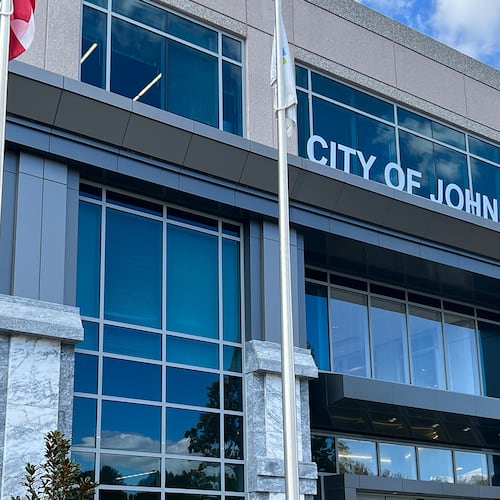For the first time since 2001, MARTA fares are going up.
After months of buildup, MARTA's board of directors has approved a budget that raises fares to $2, up from $1.75. The higher fare will start on Oct. 1.
The budget also included a surprise. Rail service will not be cut back to midnight, as staff had proposed, but will keep going until 1 a.m. In addition, three sets of buses that were on the chopping block got a reprieve: along Fulton Industrial Boulevard; in the Emory University area; and in Chamblee.
"I'm just really, really happy we were able to avoid that," said MARTA board Chairman Michael Wall.
Wall and MARTA CEO Beverly Scott said the midnight rail closing drew a roar of protest in public meetings the past six months. Also, riders said the im-
pact from the bus closings would be worse than MARTA staff thought, in at least one case extending wait times more than was originally thought.
Still, other service cutbacks will go into effect Aug. 15, including longer wait times for trains and buses. Also, parking fees will increase by $1 in locations where MARTA charges for parking.
MARTA staff found the money to keep the last hour of rail service and the three bus sets by making an accounting change with the money they set aside for retirees' medical benefits. By putting the money in a restricted account, Scott said, MARTA can put aside less money without affecting money that eventually goes to the retirees.
In a work session before the board meeting, board member Steve Stancil argued to scale back the rail service anyway, but give Scott the power to restore it later, since the economy was so uncertain.
Other board members argued that the proposal to stop rail service early drew the biggest complaints from the biggest range of riders, and that going back and forth would cause administrative problems.
"Far, far and away that was the biggest issue people had," said MARTA board chairman Michael Walls, who heard from riders at public hearings last week. "It cuts across all the classes," from poorer people returning from late-night jobs to better-off people attending evening events downtown.
The need for cuts at MARTA came with the poor economy. The agency depends partly on a sales tax collected in Fulton and DeKalb counties, and less of it is coming in as people spend less. MARTA was facing a $109.8 million shortfall for the fiscal year that's about to begin in July. It filled that gap with several stopgaps, including the cutbacks and infusions of federal stimulus money.
MARTA now plans to spend down its entire operating reserve over the next two years rather than keeping a bit of it on hand for super-emergencies —- a practice MARTA budget officials said is recommended. In spending it all, MARTA would still anticipate a $115 million deficit in two years.
Scott said the MARTA law required the agency to maintain a 10 percent operating reserve except in bad economic circumstances. Those circumstances had now occurred.
State law requires MARTA to divide its sales tax revenues between capital expenses and operating expenses. So even though it has a capital reserve, it can't use that money to pay for regular operations. Earlier this year MARTA asked the Legislature to lift the restriction, but lawmakers left the issue hanging, putting MARTA face to face with the possibility of shutting down all service one day a week to fill a $24 million gap. Federal stimulus money from the Atlanta Regional Commission came to the rescue.
The fare hike was long overdue, Scott said, but the cutbacks were nothing compared to what could come next.
Scott emphasized Monday that the cuts the board voted for would have been much more painful if not for the stimulus, which was a one-time windfall. She said looking at the red ink in the following years' budgets was "horrifying."
"I don't want people to wind up being buoyed," she said. "We have simply bought time."
MARTA fills
funding gap
The MARTA board voted Monday for the following measure to raise money and cut back spending:
Fares go from $1.75 to $2.
Where parking fees are charged, they go up by $1.
Longer waits for buses and trains.
Some bus runs eliminated.
The public speaks
Using an accounting change, MARTA took some particularly unpopular cuts off the table:
Trains will still roll until 1 a.m.
Bus routes 245, 273, 19, 70 and 139 will not be cut.
About the Author
The Latest
Featured

